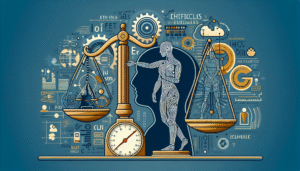
The Quantum Leap: Navigating the Rise of Quantum Computing
Quantum computing, a paradigm shift in computational power, is rapidly evolving from theoretical concept to tangible reality. Leveraging the principles of quantum mechanics, these machines promise to tackle problems currently intractable for even the most powerful supercomputers. This burgeoning field holds the potential to revolutionize industries ranging from medicine and materials science to finance and artificial intelligence.
Understanding the Quantum Advantage:
Classical computers store information as bits, representing 0 or 1. Quantum computers utilize qubits, which, through superposition, can represent 0, 1, or both simultaneously. This allows quantum computers to explore a vast number of possibilities concurrently, exponentially increasing their processing power for specific tasks. Another key quantum phenomenon, entanglement, links two or more qubits together, allowing them to act as a single system. This interconnectedness further amplifies the computational potential of quantum computers.
Key Quantum Computing Architectures:
Several approaches to building quantum computers are being pursued, each with its strengths and challenges. Superconducting qubits, leveraging circuits cooled to extremely low temperatures, are currently the most advanced. Companies like IBM and Google are heavily invested in this technology. Trapped ions, utilizing individual ions suspended in electromagnetic fields, offer high stability and long coherence times, crucial for complex computations. Other promising architectures include photonic qubits, utilizing particles of light, and neutral atoms, which offer scalability and long coherence times.
Current State of Quantum Computing:
While still in its nascent stages, quantum computing has seen remarkable progress. We are currently in the Noisy Intermediate-Scale Quantum (NISQ) era. NISQ devices possess a limited number of qubits and are susceptible to errors, or “noise.” Despite these limitations, researchers are actively exploring potential applications and developing algorithms tailored for NISQ devices. Significant milestones, like Google’s claim of achieving “quantum supremacy” in 2019, demonstrate the growing capabilities of this technology.
The Promise of Quantum Applications:
The potential impact of quantum computing spans across numerous sectors. In drug discovery, quantum simulations can accurately model molecular interactions, accelerating the development of new medicines and personalized therapies. Materials science stands to benefit significantly, with quantum computers enabling the design of novel materials with enhanced properties for applications ranging from energy storage to electronics. Financial modeling, optimization problems, and cryptography are also ripe for disruption by quantum algorithms.
Challenges and Opportunities in Quantum Development:
Scaling quantum computers to a larger number of qubits while maintaining coherence and reducing noise remains a significant challenge. Developing fault-tolerant quantum computers is crucial for realizing the full potential of this technology. Another hurdle is the scarcity of skilled quantum programmers and researchers. Addressing these challenges requires substantial investment in research and development, as well as educational initiatives to train the next generation of quantum experts.
The Quantum Computing Ecosystem:
A vibrant ecosystem of startups, academic institutions, and established tech giants is driving the advancement of quantum computing. Companies like Rigetti, IonQ, and D-Wave are developing innovative hardware platforms, while software companies are creating tools and algorithms for quantum programming. Governments worldwide are also recognizing the strategic importance of quantum computing and investing heavily in research initiatives.
Quantum Computing and Cybersecurity:
The advent of powerful quantum computers poses a significant threat to current encryption methods. Quantum algorithms, like Shor’s algorithm, have the potential to break widely used cryptographic systems, jeopardizing sensitive data. This has spurred research in post-quantum cryptography, exploring new encryption techniques resistant to quantum attacks. Developing and implementing these new cryptographic standards is crucial to ensuring data security in the quantum era.
Quantum Computing and Artificial Intelligence:
Quantum machine learning algorithms promise to accelerate training and improve the performance of AI models. Quantum computers can process vast datasets and perform complex calculations, potentially leading to breakthroughs in areas like image recognition, natural language processing, and drug discovery. The intersection of quantum computing and AI is a rapidly evolving field with immense potential.
The Future of Quantum Computing:
While predicting the precise timeline for widespread adoption of quantum computing remains challenging, the trajectory is clear. As hardware continues to improve and algorithms become more sophisticated, we can expect to see an increasing number of real-world applications emerge. The future of quantum computing is bright, promising transformative changes across various sectors and shaping the technological landscape for decades to come. Understanding the intricacies of this evolving field and its potential impact is essential for individuals, businesses, and governments alike. The quantum revolution is underway, and its impact will be profound.














